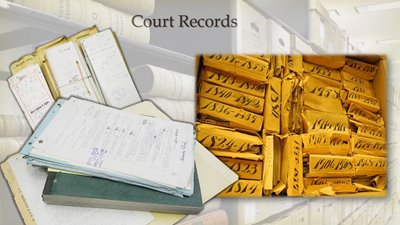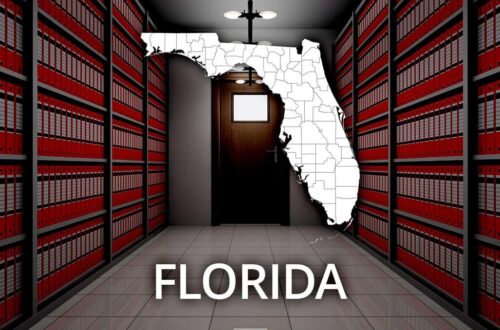
Court Records
Court records in Florida are official documents that are kept by the courts. They contain important information about legal proceedings, such as trial dates and verdicts. Court records can include anything from criminal case decisions to civil disputes between two parties. These records provide an account of what happened in a court case and serve as evidence for future cases.
It’s important to understand how these documents are organized and what information they contain to access the data you need. Fortunately, there are steps you can take to make navigating court records easier.
First, familiarize yourself with the types of documents available for public viewing, such as pleadings, motions, orders, and judgments. Knowing the names and purposes of each document will help narrow down your search. Next, determine which court holds the records you need. You may need to contact a clerk or visit a courthouse to find out more.
In the United States, court records are public documents and anyone is allowed to view them. However, some personal information like addresses may be redacted or removed from the documents. Court records can help individuals understand how the law works and give insight into specific cases.
Uncovering Court Records in Florida: Secret Strategies
If you’re looking to uncover court records in Florida, there are a few secret strategies you can use. One is to do an online search for public records. By visiting the websites of courts and other government agencies, you can often find information on recent legal proceedings. You may also be able to access certain documents, such as arrest records or civil suits, depending on your jurisdiction.
Another strategy is to attend county clerk’s office meetings. Many times, they will provide insight into current cases that could help you locate court records. Finally, consider asking an attorney who specializes in Florida law if they can point you toward any relevant documents. With these tips, you’ll be well on your way to uncovering court records in Florida!
In What Are Florida Court Documents Included
Florida court records contain a wealth of information about the legal disputes or issues people have faced. These documents can include case filings, rulings, decisions, and sentencing orders related to criminal cases. Court documents are usually created when a person is involved in a legal dispute or lawsuit, such as for divorce or civil disputes.
Court records include information about the outcomes of legal cases, such as judgments, settlements, and appeals. They can also contain documents used in a trial or hearing, including witness statements, transcripts, evidence, motions, and other filings. Court documents are available to view online through various websites that provide access to public records.
Types of Court Records
There are several major types of these records, including criminal records, civil records, appellate records, and traffic records.
Criminal records show details related to a person’s alleged or convicted criminal offenses, such as the charges brought against them, any evidence presented in court, and the resulting verdicts or sentences.
Civil records document disputes between two or more parties that seek monetary compensation or other forms of relief. These records may include briefs filed by attorneys, transcripts from proceedings, witness testimonies, findings of fact issued by a judge, and more.
Appellate records contain information about appeals made to higher courts after a lower court ruling. The documents contained in this type of record will typically focus on whether an error was made in the original decision and how it should be corrected.
Finally, traffic records are associated with violations of motor vehicle laws. These records may contain details such as the name and address of the person charged, their license number, the date and time of the violation, and a description of what occurred.
How to Research Court Documents
Researching court documents in Florida is a fairly straightforward process. It involves getting access to public records and other legal documents that are available through the state’s online system. To get started, you will need to find the website for the court system where the document was filed or issued. Once there, you can search for specific cases or look up general information about different courts.
Once you have located the right court, you can search for any court documents related to that case. The search results may include things like pleadings, motions, orders, transcripts, briefs, judgments, jury instructions, and more. You can then download the documents and view them on your computer or print them out.
You also have the option of visiting the physical courthouse to research court documents in person. At the courthouse, you will be able to look through actual paper copies of various court documents. This can be helpful if you want to view multiple documents at once or if you need assistance from an employee of the court.
It’s important to keep in mind that some court documents may not be accessible either online or in person due to privacy laws or restrictions placed by the court.
The Interpreting of Court Records
Interpreting court records requires careful attention and knowledge of the law. When you interpret court documents, it is important to read them thoroughly and carefully review any supporting documents. This helps ensure that all details are accurately interpreted. Understanding court records can be difficult but with the right approach and focus, interpreting these documents can provide valuable insight into a case or situation.





